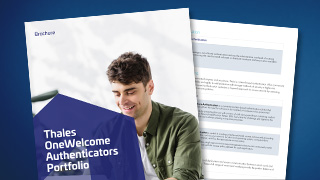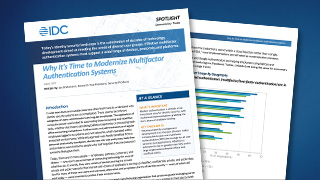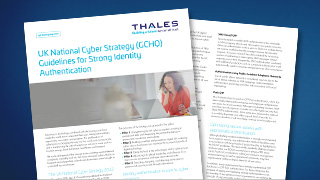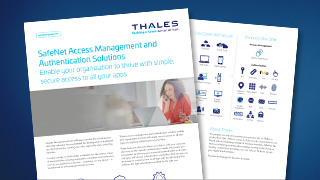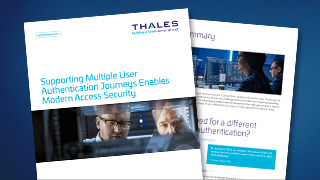Protect your business against unauthorized access
Secure your business with multi-factor authentication (MFA), adding an extra layer of protection against unauthorized access. By requiring multiple forms of verification, you substantially strengthen your cyber defenses.
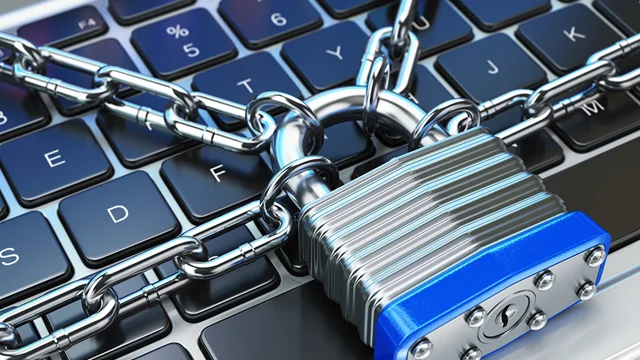
Protects against unauthorized access
Reduce the risk of unauthorized access and identity theft.

Comply with regulatory requirements
Implementing best practices for meeting compliance and safeguarding sensitive data.

Improve user trust
Foster confidence among users, demonstrating a commitment to protecting their sensitive information.
#2025TRUSTINDEX
86% of consumers
emphasized the importance of having MFA for additional security on their online accounts. 50% of the respondents rated this feature as very important.

What is MFA?
Multi-Factor Authentication (MFA) is a secure authentication method that bolsters digital security by ensuring that users truly are who they claim to be. MFA combines distinct factors to establish identity authenticity, including:
Something you know:
A password, PIN, or other secret information known only to the user.
Something you have:
Users’ possession of a physical item, such as a token or smart card, which verifies the user's identity.
Something you are:
Biometric identifiers, such as fingerprints or facial recognition.
HOW THALES CAN HELP
MFA with Thales: How does it work?
Thales' multi-factor authentication solutions deliver the protection you expect, while enabling customers with broader choice, improved visibility, and the flexibility to adapt to future needs seamlessly. Our authentication services address various use cases with a wide range of authentication methods and tokens, simplifying delivery and security for organizations grappling with cloud, mobility, and escalating threats in the IT landscape.
Authenticators
Thales Authenticators addresses numerous use cases, assurance levels, and threat vectors, leveraging both current and emerging protocols (OTP, PKI, FIDO) as well as multiple form factors (hardware and virtual smart cards and tokens, software and mobile authenticators).
SafeNet Trusted Access
SafeNet Trusted Access, our cloud-based workforce IAM service, has been recognized as a top MFA solution by Expert Insights and will help you deliver intuitive and secure authentication journeys. Accelerate your cloud transformation, secure hybrid infrastructures, reduce the risk of shadow IT, and make work life easier.
Which identities do you want to protect?
Customer Identities
Safeguard your customers’ identities and their data by making it more difficult for third parties to steal it.
Third-Party Identities
Protect your external collaboration network the highest level of security.
Workforce Identities
Create strong barriers against unauthorized access within your workforce.
CASE STUDY
Protecting employee data with passwordless authentication
Human resource departments are prime targets for cybercriminals due to the abundance of sensitive employee data they hold. Sadly, Vanderbilt University Medical Center in Nashville fell victim to such an intrusion. Fortunately, with SafeNet from Thales, VUMC can now protect employee data integrity, strengthen access controls, and prevent security breaches.
Comply with regulatory requirements
By 2024, Federal agencies must enforce MFA for accessing federal systems, using phishing-resistant authentication methods. MFA is now a mandatory requirement in global industry and government regulations.
MFA for cyberinsurance
The cost and impact of cyber-attacks are increasing, especially for small and medium businesses, making the purchase of cyber insurance a necessity for reducing risk. MFA is now required for cyber insurance coverage by most agencies.
MFA SPOTLIGHT
Execute digital experiences with the highest level of security
65% of organizations view MFA adoption as paramount for protecting sensitive data. Explore the advantages of the SafeNet IDPrime FIDO Bio smart card—a FIDO2 security key allowing seamless, secure authentication across various devices using a fingerprint instead of a password.

4.8 out of 5 stars
"SafeNet Trusted Access is a trusted enterprise identity and access management solution that enables highly secure, cloud-based single sign-on and multi-factor authentication. Granular, scenario-based access policies are the highlight of this solution, delivering advanced security while ensuring granular flexibility and control over authentication workflows."

MFA was usually seen as a control that adds too much friction. But in a recent survey conducted by Thales, more than 80% of respondents said that they prefer brands to offer MFA. User perception is evolving and paving the way for great MFA adoption.
Recommended resources
Frequently asked questions
MFA options best suited for enterprise environments typically include a combination of factors like OTP, biometrics, and smart cards for heightened security.
The primary difference between 2FA and MFA lies in the number of authentication factors used. 2FA requires two factors, typically a password and a second factor like an OTP, while MFA involves three or more factors, adding an extra layer of security.
The speed of implementing MFA depends on various factors such as the complexity of your systems, the chosen MFA solution, and organizational readiness. Generally, it can be implemented relatively quickly, often within weeks, especially with cloud-based solutions.


